Purpose Statement
- The people’s life is full of different situations, which require from them to make decisions, respond appropriately, and act.
- It is vital for people to stay confident and concentrated in any situation to make the best decision for quality outcomes;
- Nonetheless, stress becomes an integral part of life so that coping with it is a crucial skill to preserve health;
- The proposed strategies and examples should help students to understand different situations and overcome stress disregarding settings and external factors.
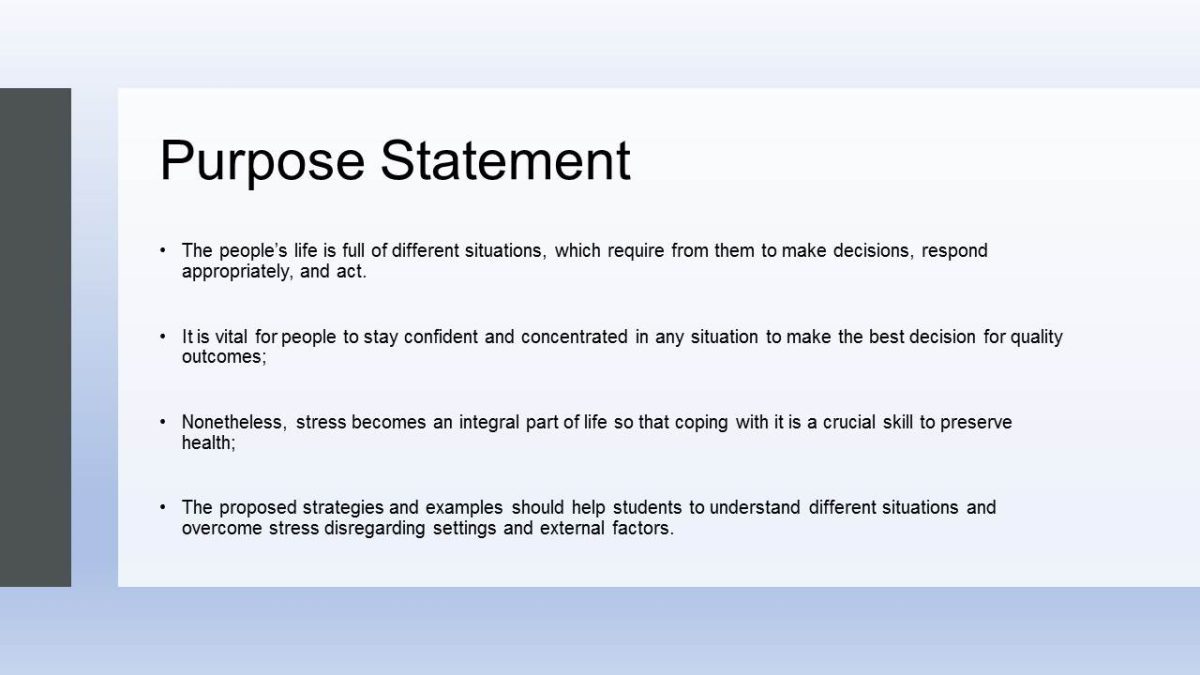
What is Stress?
- Stress is a universal mechanism that allows all sentient beings to be flexible in different circumstances.
- American physiologist Walter Cannon introduced the term stress in 1932. The term has become more widely used thanks to Canadian endocrinologist Hans Selye, who explained the underlying mechanisms of body adaptation (Tan and Yip 170).
- All factors that cause pressure are called stressors or stressors. They can be of any nature: physical, chemical, geological (natural elements), biological, social.
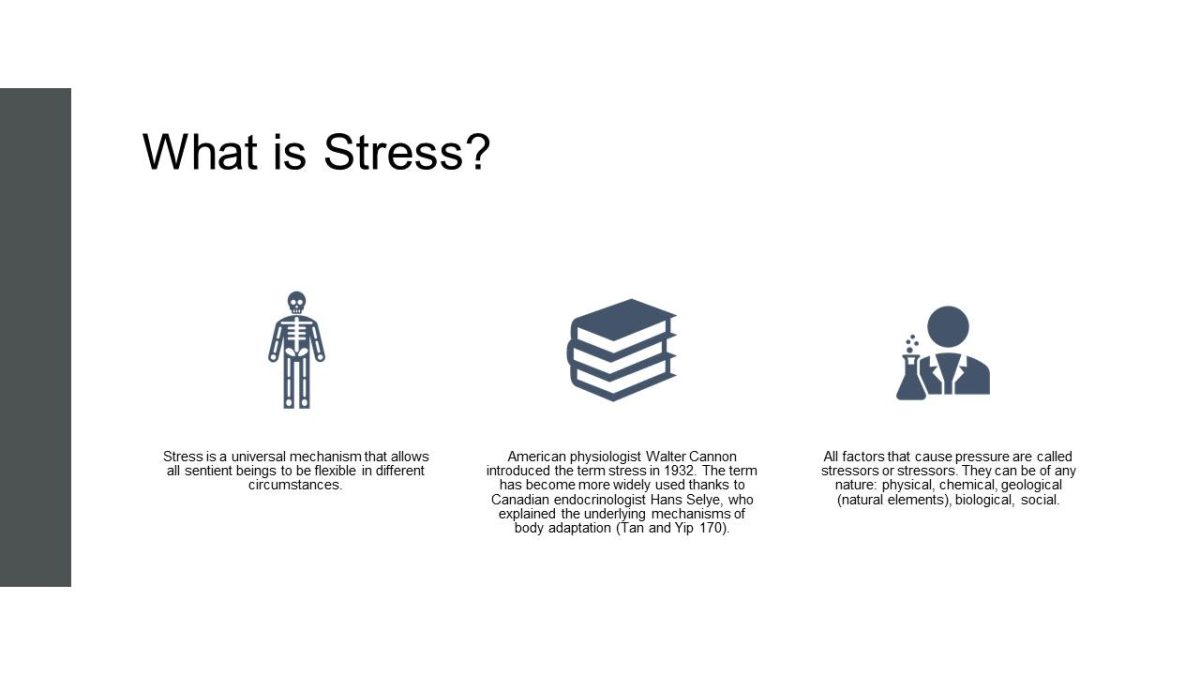
Stress Symptoms and Impact
- Symptoms: insomnia, anxiety, aggression, depression.
- Chronic stress impact: chronic diseases, psychological disorders, cardiovascular diseases, lethal outcomes.
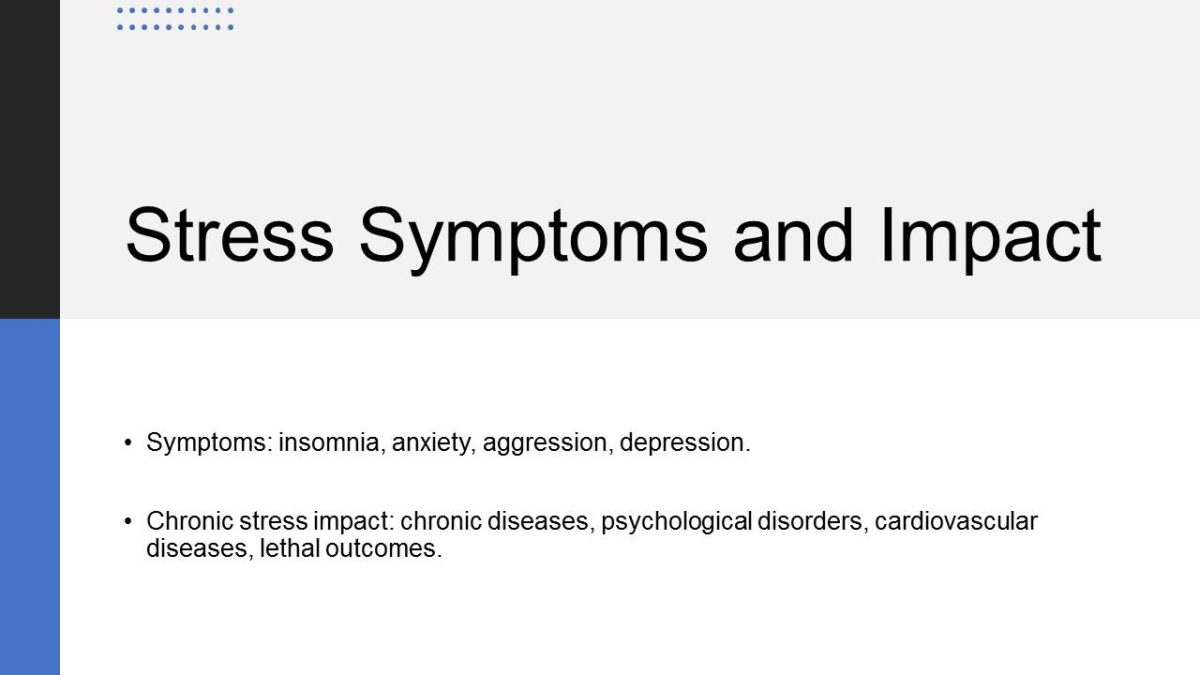
Accept the fact that stress is inevitable
- Something unplanned can happen to you, but you can prepare yourself to stay calm and concentrated in any situation.
- During the study of occupational stress management programs conducted by scientists, the most effective was the one, which included setting precise goals, solving current problems, identifying negative thoughts, time to rest, and time management.
- Instead of trying to avoid or suppress them, try to accept it and understand that they are only temporary and will pass soon. In psychology, this strategy is called “decentralization.”
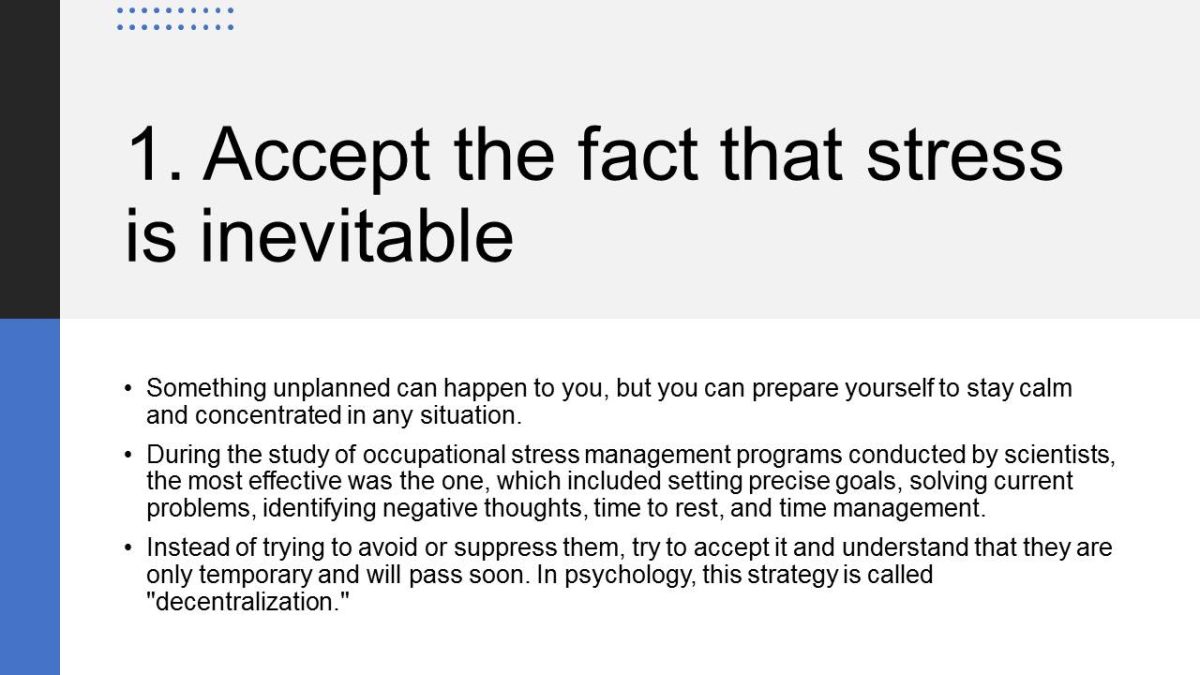
Take control of the situation
- Healthy people identify the source of stress and do everything they can to get rid of it. Making some changes to your lifestyle and surroundings can significantly reduce your stress levels.
- Sometimes, a little positive emotion is enough to reduce stress. Even in the most stressful situations, being able to laugh at how you overreacted or misunderstood something will help you turn your negative mood into a positive one (Zhang et al. 1296).
- For example, you might say to yourself, “It was unwise for me to forget my wallet, but it’s good that I noticed it now, not at the checkout counter at the supermarket with a full cart of products.”
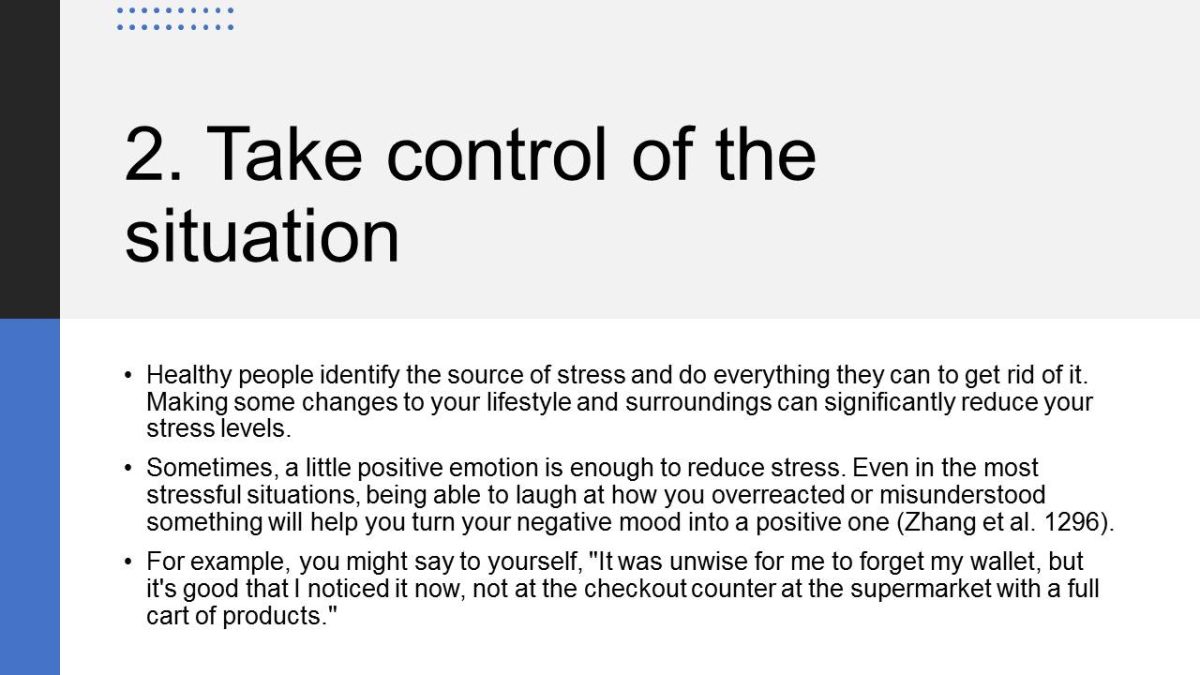
Time management
- Very often, stress occurs when we do not have time to do what we need. Therefore, it is crucial to plan your time well in advance so that everything can be managed and avoided.
- Avoiding a particular situation makes you delay it. You will not solve the problem if you are continually running away from it, so do not be afraid to face difficulties face to face (Zhang et al. 1296).
- Acknowledge the fact that you do not avoid unpleasant feelings and prepare for it in advance using one or more techniques. One stressful situation alone will not change your life.
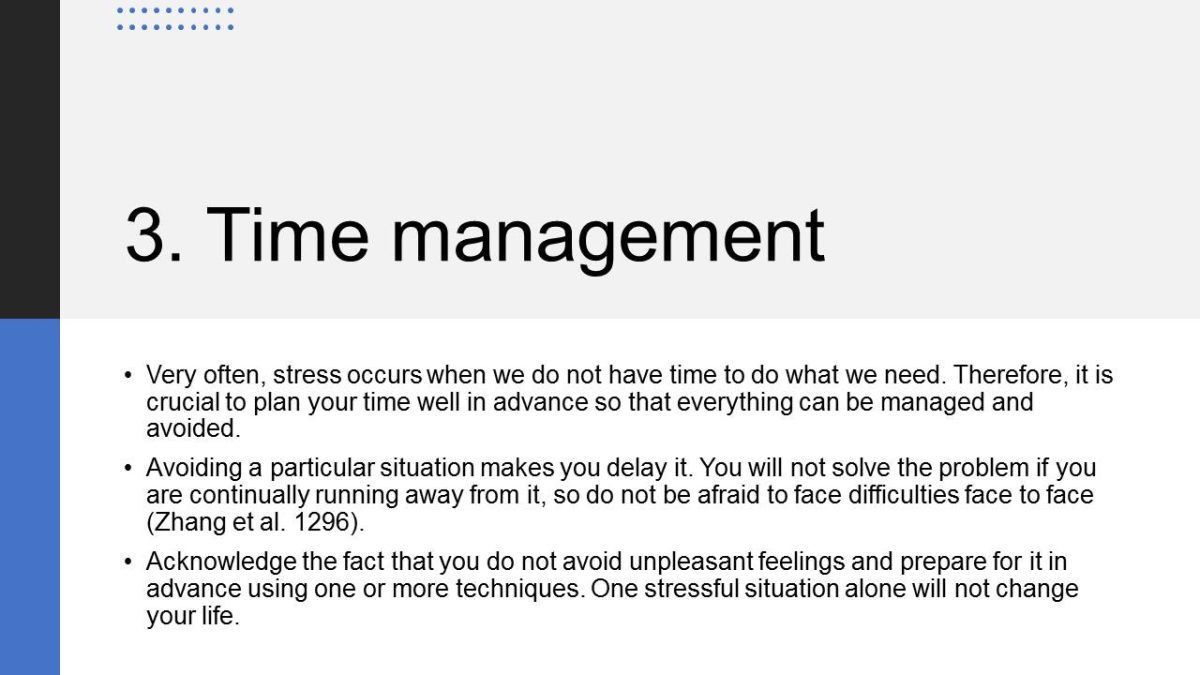
Conclusion
- The stressful situations are unpleasant events; however, they are not inevitable or long-lasting.
- The presented strategies allow people to be prepared and confident in to face stress and deal with it.
- It is better to embrace the challenge rather than avoid it or behave as if nothing had happened.
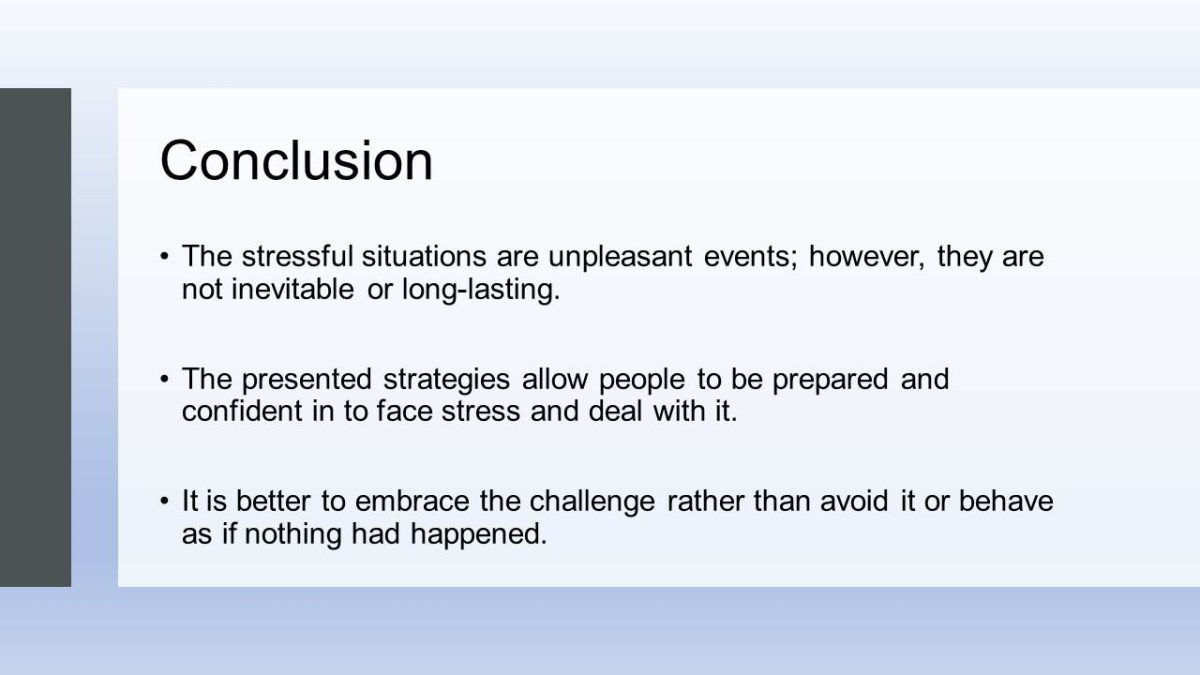
Works Cited
Tan, Siang Yong, and A. Yip. “Hans Selye (1907–1982): Founder of the stress theory.” Singapore medical journal 59.4 (2018): 170.
Zhang, Yiwen, et al. “Promotion-and prevention-focused coping: A meta-analytic examination of regulatory strategies in the work stress process.” Journal of Applied Psychology 104.10 (2019): 1296.